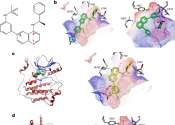What happens to your brain when you drink with friends?
Grab a drink with friends at happy hour and you're likely to feel chatty, friendly and upbeat. But grab a drink alone and you may experience feelings of depression. Researchers think they now know why this happens.
6 hours ago
0
38








